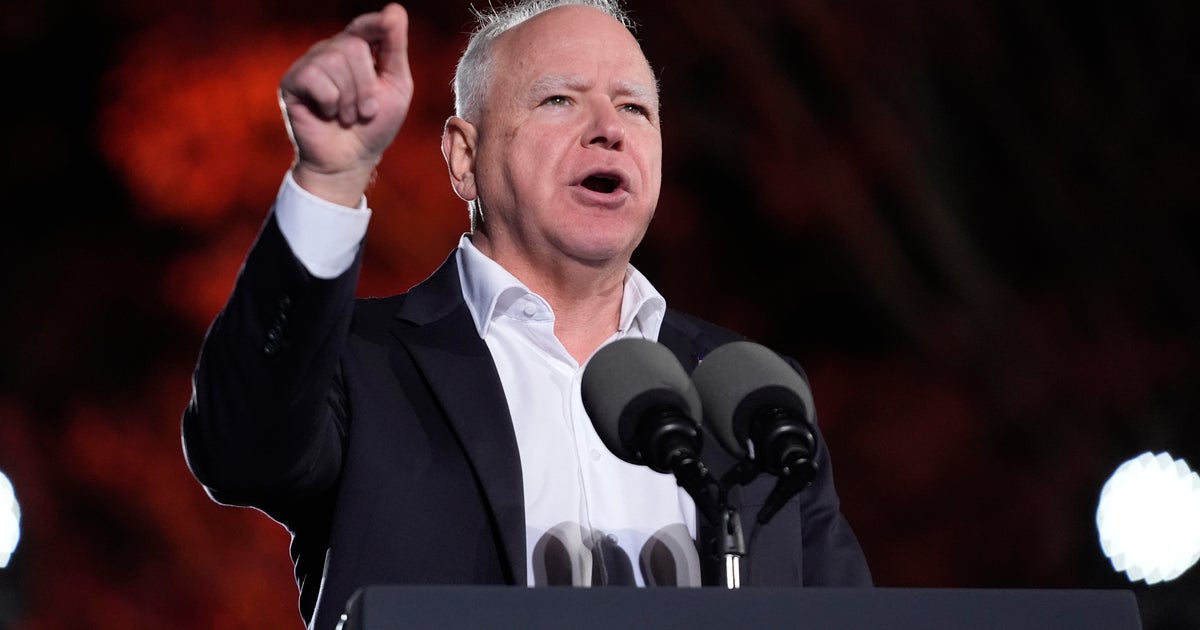Minnesota GOP lawmakers warn of impact of potential federal Medicaid cuts
Some Republicans in the Minnesota Legislature sounded the alarm about potential federal cuts to Medicaid, which could be at risk after the U.S. House passed a budget framework that includes slashing federal spending.
The GOP-backed plan proposes $1.5 trillion in cuts over the next decade. The Energy and Commerce Committee, which oversees Medicaid, is tasked with finding $880 billion in savings, prompting concerns about the future of the government's health insurance program supporting millions of low-income people and individuals with disabilities across the country.
Last week, before the House narrowly approved the resolution, 14 Minnesota state senators and representatives wrote a letter to Republicans in the state's Congressional Delegation urging them to push back on any cuts, citing concerns about the impact.
Medicaid serves 1.3 million Minnesotans, according to the Minnesota Department of Human Services. The federal government covers just over half the costs associated with the program and nearly all of the associated costs for those who qualify under Medicaid expansion, according to the Kaiser Family Foundation.
"There are no other sources to make up the lost federal share beyond severely impacting our seniors and those with disabilities who we serve. This is contrary to how we Republicans respect the aged and the vulnerable," wrote Sen. Jim Abeler, R-Anoka, and 13 others who serve on committees related to human services.
DFL U.S. Rep. Betty McCollum published the letter on her X account earlier this week.
"You can make a difference in this debate. Please, please do," the GOP legislators wrote in the letter dated Feb. 20.
GOP House Speaker Mike Johnson said Tuesday the focus is rooting out any waste, fraud or abuse in Medicaid to find savings. He noted that nowhere in the resolution is Medicaid specifically mentioned.
"What you're doing with that is you're shoring up the program and you're making sure the people who rely upon that, have it and it's a better program. That's what we're talking about," Johnson said. "You've heard the president say that. You've heard members of the House Republican Conference say that and no one else has said anything else except that Democrats who have ads out that lying about the intention here."
WCCO tried to interview House and Senate members who signed on to the letter, but they were either unavailable or declined to speak further on Wednesday.
In the Senate Human Services committee on Wednesday afternoon, Elyse Bailey, the budget analysis director with the Minnesota Department of Human Services, said the impact of cuts is unclear. The panel called her in last minute to answer questions about the resolution.
"There's really no option, it seems in our quick analysis, that health care isn't going to be touched if they truly do hit that target," Bailey said.
Minnesota receives $11.2 billion in Medicaid funding, she added, and that will increase to $14.5 billion by fiscal year 2029.
"Last night, every parent who has a kid with a disability, every person who is disabled in this state — like a shock of fear just is living over them," said Sen. Erin May Quade, DFL-Apple Valley, during the committee. "When we have people who are coming to us, who are freaking out, and we have no more answers — the richest man in the world in Washington who is doing this needs to hear this because this is just untenable. It is unsustainable."
Abeler said the committee should wait and see more details about what the plan looks like out of Washington. There are more steps in the budget process before anything is final.
"Nothing is certainly bad going to happen based upon anything today. And you have a committee here who is deeply concerned, in a totally non-partisan way, about the welfare of the people we serve," Abeler said.
Among those enrolled in Medical Association, the state's Medicaid program, 42% are children. Roughly two-thirds of all people served are parents, children and pregnant people, according to DHS.
WCCO also reached out to Minnesota's Republican Representatives in Congress — Emmer, Finstad, Fishbach and Stauber — for comment about the letter and did not hear back.
In their letter, GOP state legislators also noted that health care is a top employer in rural Minnesota and cuts could hurt local economies, too.




